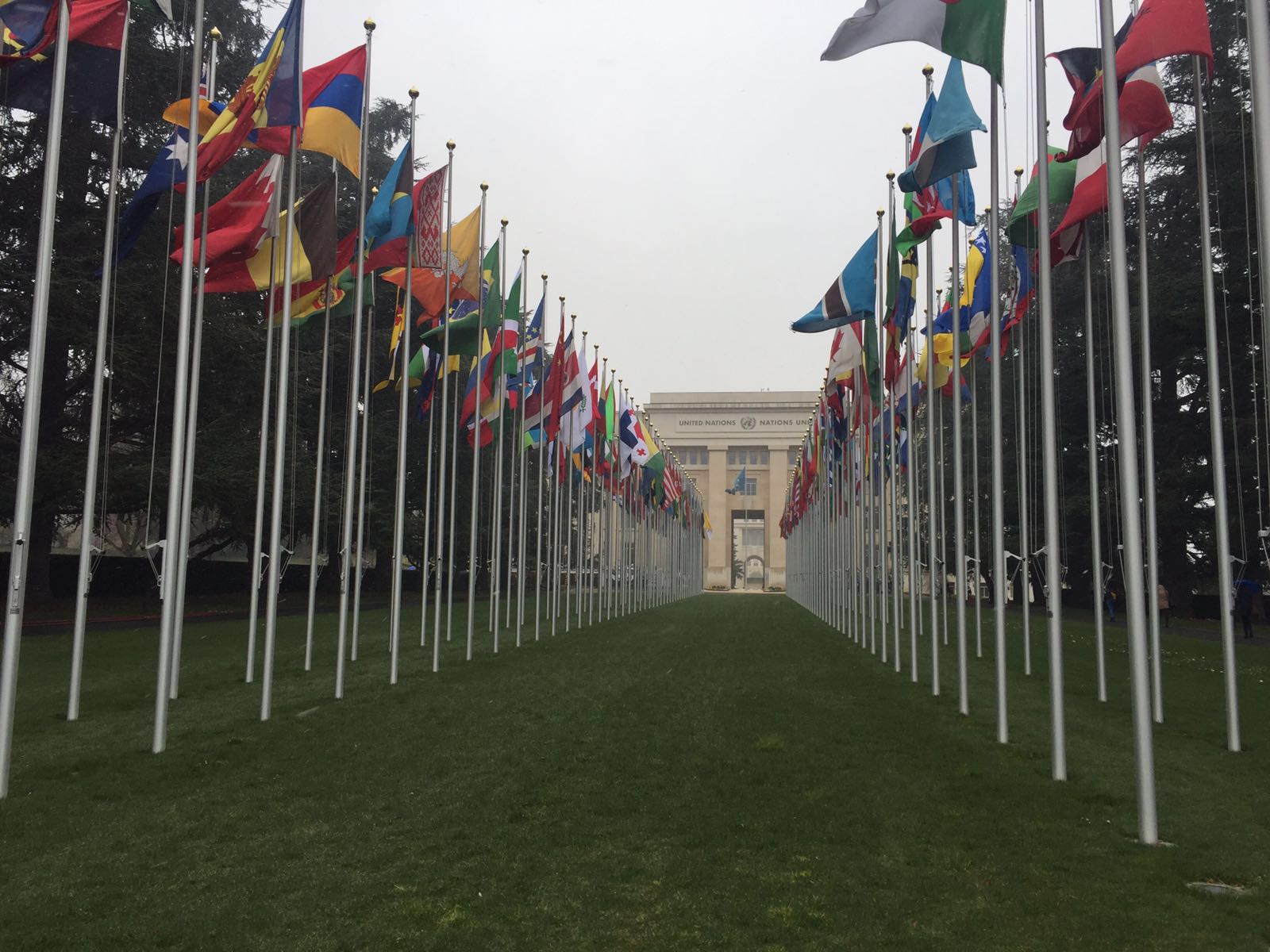17 March 2016, Geneva – Today, the Human Rights Council adopted the outcome of Second Cycle UPR report of Oman, with 233 recommendations made by Member States urging the Sultanate to improve its human rights practices. Of these 233 recommendations, Americans for Democracy & Human Rights in Bahrain (ADHRB) is disappointed to note that only 169 of these were accepted by Oman. Since 2011, the Omani government has increased its use of restrictive measures in response to pan-Arab peaceful movements for human rights and democratic change. Over this period, authorities have arrested a documented number of 216 people on charges relating to freedom of expression and freedom of assembly.
However, during its 2011 UPR, Oman had pledged to “review its relevant legal framework to safeguard the legitimate exercise of freedom of expression.” Unfortunately, this promise has not been kept. Omani authorities have continued to punish its citizens for exercising their right to freedom of expression.
As such, human rights defenders cannot carry out their work without fear of reprisals. Authorities have arrested and prosecuted human rights defenders, writers, journalists and bloggers. They often confiscate their identification papers and issue travel bans against them. A common charge against activists is the claim that they are “undermining the prestige of the state.” “Incitement to protest” and claims of using social media in a way that “infringes the sanctity of public order” are other common charges.
On 15 February 2016, an Omani Court of Appeal sentenced Hassan Al-Basham to prison for expressing his dissent on social media. He was condemned to three years imprisonment on charges for “insulting God” and “insulting Sultan Qaboos bin Said al Said”. Similarly, on 18 March 2015, the Court of First Instance in Salalah sentenced in absentia a published writer, poet and human rights activist, Sayid al-Doradi, to one year in prison for “disturbing public order.” Later, he was additionally sentenced to six months in prison and a fine of 1000 Omani Rials (approximately 2600 US$) on a charge of “spreading sedition and hatred.”
These are just few examples of the many practices in Oman that fail to meet international human rights standards on freedom of expression. These judgments are further facilitated by Omani legislation. Articles 29, 30 and 31 of the Basic Law (considered as Oman’s Constitution) guarantees the right to freedom of expression and freedom of the press, but restricts this right on “the conditions and circumstances defined by the law”. The law also states that any publication that “leads to public discord, violates the security of the state or abuses a person’s dignity and his rights” is forbidden. In addition, article 61 of the 2002 Telecommunications Act penalizes “any person who sends, by means of telecommunications system, a message that violates public order or public morals”. This legal framework allows for an ambiguous interpretation of the right to freedom of expression, which is often used to the detriment of peaceful dissenters.
From 8 to 13 September, UN Special Rapporteur on the rights to freedom of assembly and association, Mr. Maina Kiai, conducted an official visit to Oman. In his report, he stated that he was “extremely concerned about the restrictive environment for the exercise of the right to freedom of association in Oman”. Charges relating to freedom of assembly and association are frequent in the Sultanate, with both restrictive legislation and arbitrary application playing their share. Article 37 of Oman’s Penal Code criminalizes public protests. According to Article 137 of the Basic Law, government approval is also necessary for all public gatherings. Additionally, participating in a private gathering of at least 9 individuals with a view to commit “a riot, or, a breach of public order” is punishable with up to three years in prison and with a fine of 200 Rials [US$520].
Thus, with much progress yet to be seen in both its legal framework and practices, and upon adoption of Oman’s outcome UPR report, ADHRB urges the Sultanate of Oman to:
- Ratify the International Covenant on Civil and Political Rights
- Ratify the International Covenant on Economic, Social and Cultural Rights
- Release all prisoners detained on charges relating to their peaceful human rights work, freedom of expression, association or assembly
- Amend all laws relating to freedom of expression, association and assembly to ensure their compliance with international human rights standards
Sophia Nizard is an Advocacy Intern at ADHRB.





